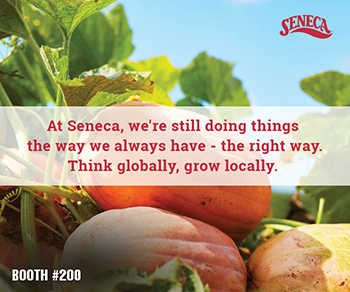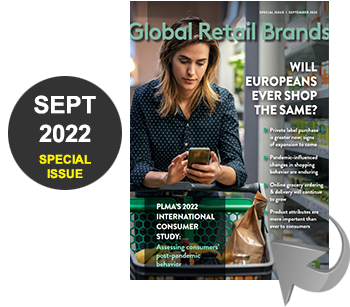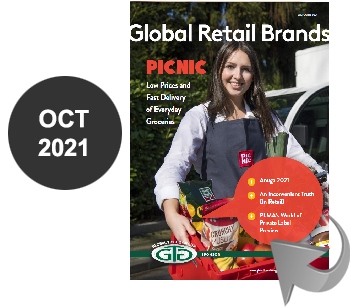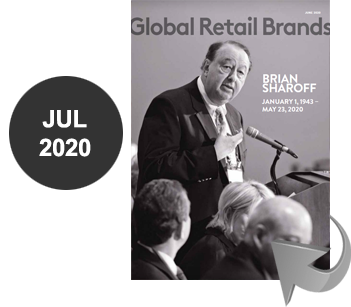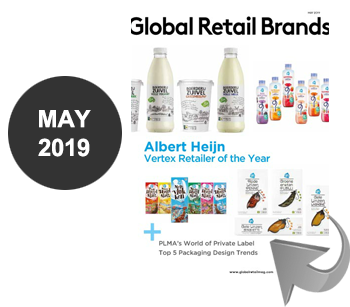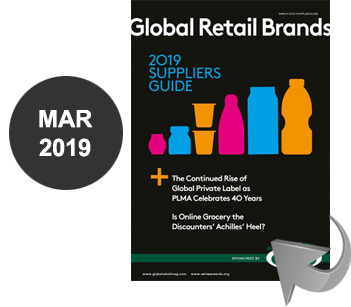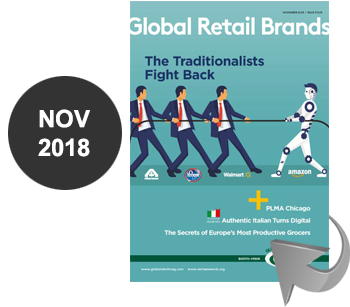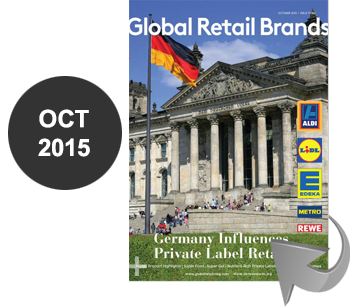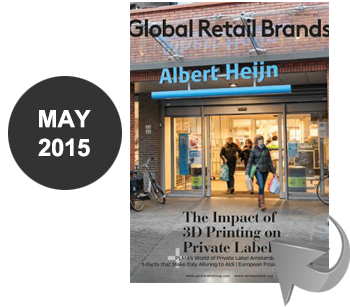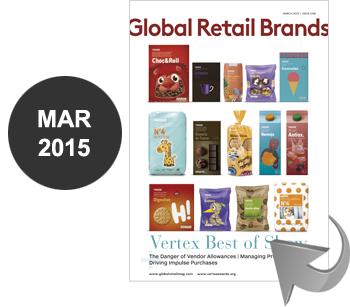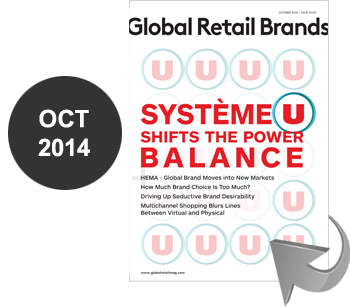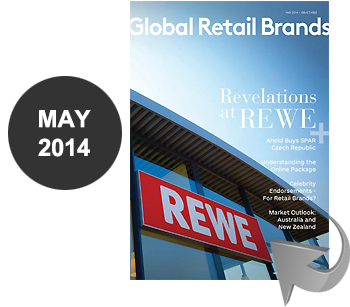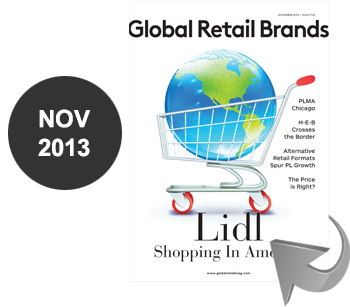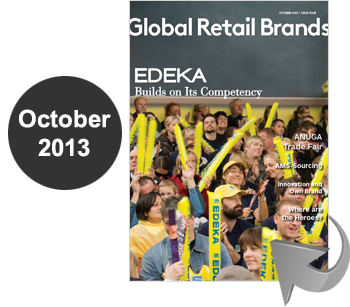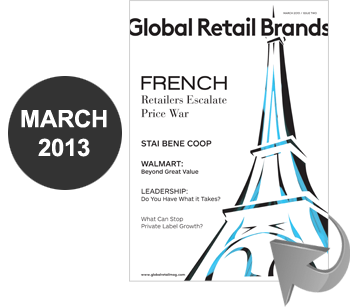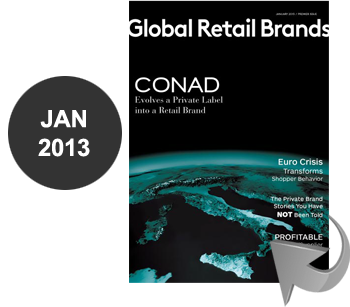
By David Lopes, President & General Manager , International Private Brand Development for Daymon Worldwide
When a typical consumer thinks of a private brand, what comes to mind? Many of us may immediately think of the store-owned products sold at our favorite local supermarket. Yet there are some amazing international private brands brought to life through cutting edge companies that are not only leading their respective markets but also dominating.
 Apple is an excellent Private Brand example. A remarkable company, Apple knows its consumer well enough to provide technology that not only meets their current needs, but also anticipates their future needs, thereby driving continual industry advancement. They’re an outstanding retailer; they have stores, but no factories. Another great example is Ikea, a private brand which has revolutionized home furnishings.
Apple is an excellent Private Brand example. A remarkable company, Apple knows its consumer well enough to provide technology that not only meets their current needs, but also anticipates their future needs, thereby driving continual industry advancement. They’re an outstanding retailer; they have stores, but no factories. Another great example is Ikea, a private brand which has revolutionized home furnishings.
Think about Tiffany, an exclusive brand that offers timeless jewelry designs that span generations in its appeal but also represents success, tradition, love, all packaged in its signature blue box. These are all private brands, although we don’t as easily associate them as such. But what differentiates them from other private brands is that they have become a true representation of what their target consumer wants them to be.
Private brand penetration in food is expected to reach between 15-20 percent globally by 2020. Much of this will come from emerging countries as indications point to regions such as Asia, Latin America and Africa reaching approximately 10 percent of penetration. We are already beginning to see such growth and the accompanying demand for the benefits that private brands can bring.
 This growth is fueled by retailers who understand that creating and managing brands is an enormous responsibility. Placing one’s brand on a product is much more than just filling and printing packages. It is a commitment with consumers. The more innovative and consistent the commitment, the more it contributes towards the product being perceived as the best or equivalent to the best. To achieve that level of commitment,brand concepts and values must be developed. The retailers, hand in hand with the best manufacturers, can in fact create innovation and respond to consumer’s expectations and needs. We’ve already seen impressive retailer success in evolving Private Brands from their former “me too” image of producing exact copies of National brands, which brought nothing new or inspiring to the market or the store itself.
This growth is fueled by retailers who understand that creating and managing brands is an enormous responsibility. Placing one’s brand on a product is much more than just filling and printing packages. It is a commitment with consumers. The more innovative and consistent the commitment, the more it contributes towards the product being perceived as the best or equivalent to the best. To achieve that level of commitment,brand concepts and values must be developed. The retailers, hand in hand with the best manufacturers, can in fact create innovation and respond to consumer’s expectations and needs. We’ve already seen impressive retailer success in evolving Private Brands from their former “me too” image of producing exact copies of National brands, which brought nothing new or inspiring to the market or the store itself.
Projections show that the only private brands with space for further growth and innovation will become successful, premium brands that will lead the industry. The rest are quickly becoming irrelevant because they are not differentiating themselves. One notable example of a successful premium range is Tesco Finest, which continues to drive sales through innovation. It was relaunched in 2013 and is now said to be worth £1.4 billion in annual sales. According to Kantar Worldpanel, this is the fastest growing premium brand, with over 12 million Tesco Finest products now consumed in the UK every week.
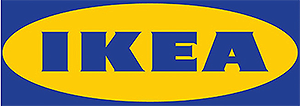 Retailers are and will increasingly take a brand-orientated approach to their private brands, investing in marketing and product innovation, segmenting their ranges to appeal to different consumer groups and creating high quality venture brands, some even with export potential. Some examples include Australian retailer Woolworths, who sells their private brands in 50 countries, and Portuguese retailer Recheio’s private brand, Amanhecer, which is not only sold at other retailers and in other countries, but has evolved into having its very own stores.
Retailers are and will increasingly take a brand-orientated approach to their private brands, investing in marketing and product innovation, segmenting their ranges to appeal to different consumer groups and creating high quality venture brands, some even with export potential. Some examples include Australian retailer Woolworths, who sells their private brands in 50 countries, and Portuguese retailer Recheio’s private brand, Amanhecer, which is not only sold at other retailers and in other countries, but has evolved into having its very own stores.
While I cannot say with certainty what tomorrow will bring in this world of dizzying acceleration, I do venture to say that the food area may well represent 20 percent of sales of global organized retail. However, it does not and will not stop there as brands owned by retailers in the area of nonfood, fuel, financial services, tourism, etc. will also appear and grow. The evolution of technology platforms and accessibility, and low cost e-Commerce solutions will revolutionize the world of brands as we know it.


